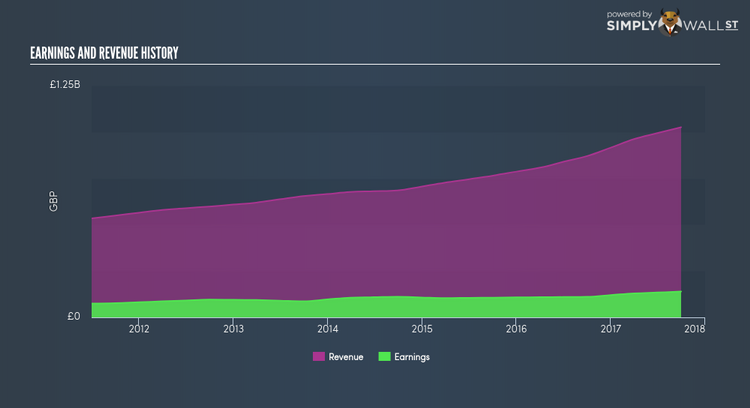How Should You Think About Halma plc’s (LON:HLMA) Risks?

For Halma plc’s (LSE:HLMA) shareholders, and also potential investors in the stock, understanding how the stock’s risk and return characteristics can impact your portfolio is important. HLMA is exposed to market-wide risk, which arises from investing in the stock market. This risk reflects changes in economic and political factors that affects all stocks, and is measured by its beta. Not every stock is exposed to the same level of market risk, and the market as a whole represents a beta of one. A stock with a beta greater than one is expected to exhibit higher volatility resulting from market-wide shocks compared to one with a beta below one.
View our latest analysis for Halma
An interpretation of HLMA’s beta
With a five-year beta of 0.41, Halma appears to be a less volatile company compared to the rest of the market. The stock will exhibit muted movements in both the downside and upside, in response to changing economic conditions, whereas the general market may move by a lot more. Based on this beta value, HLMA appears to be a stock that an investor with a high-beta portfolio would look for to reduce risk exposure to the market.
Could HLMA’s size and industry cause it to be more volatile?
A market capitalisation of UK£5.18B puts HLMA in the basket of established companies, which is not a guarantee of low relative risk, though they do tend to experience a lower level of relative risk compared to smaller entities. However, HLMA operates in the electronic industry, which has commonly demonstrated strong reactions to market-wide shocks. Therefore, investors can expect a low beta associated with the size of HLMA, but a higher beta given the nature of the industry it operates in. This is an interesting conclusion, since its industry suggests HLMA should be more volatile than it actually is. A potential driver of this variance can be a fundamental factor, which we will take a look at next.
How HLMA’s assets could affect its beta
An asset-heavy company tends to have a higher beta because the risk associated with running fixed assets during a downturn is highly expensive. I examine HLMA’s ratio of fixed assets to total assets to see whether the company is highly exposed to the risk of this type of constraint. Given that fixed assets make up less than a third of the company’s total assets, HLMA doesn’t rely heavily upon these expensive, inflexible assets to run its business during downturns. Thus, we can expect HLMA to be more stable in the face of market movements, relative to its peers of similar size but with a higher portion of fixed assets on their books. Similarly, HLMA’s beta value conveys the same message.
What this means for you:
You may reap the benefit of muted movements during times of economic decline by holding onto HLMA. Its low fixed cost also means that, in terms of operating leverage, its costs are relatively malleable to preserve margins. What I have not mentioned in my article here are important company-specific fundamentals such as Halma’s financial health and performance track record. I highly recommend you to complete your research by taking a look at the following:
Future Outlook: What are well-informed industry analysts predicting for HLMA’s future growth? Take a look at our free research report of analyst consensus for HLMA’s outlook.
Past Track Record: Has HLMA been consistently performing well irrespective of the ups and downs in the market? Go into more detail in the past performance analysis and take a look at the free visual representations of HLMA’s historicals for more clarity.
Other High-Performing Stocks: Are there other stocks that provide better prospects with proven track records? Explore our free list of these great stocks here.
To help readers see pass the short term volatility of the financial market, we aim to bring you a long-term focused research analysis purely driven by fundamental data. Note that our analysis does not factor in the latest price sensitive company announcements.
The author is an independent contributor and at the time of publication had no position in the stocks mentioned.

 Yahoo Finance
Yahoo Finance 
